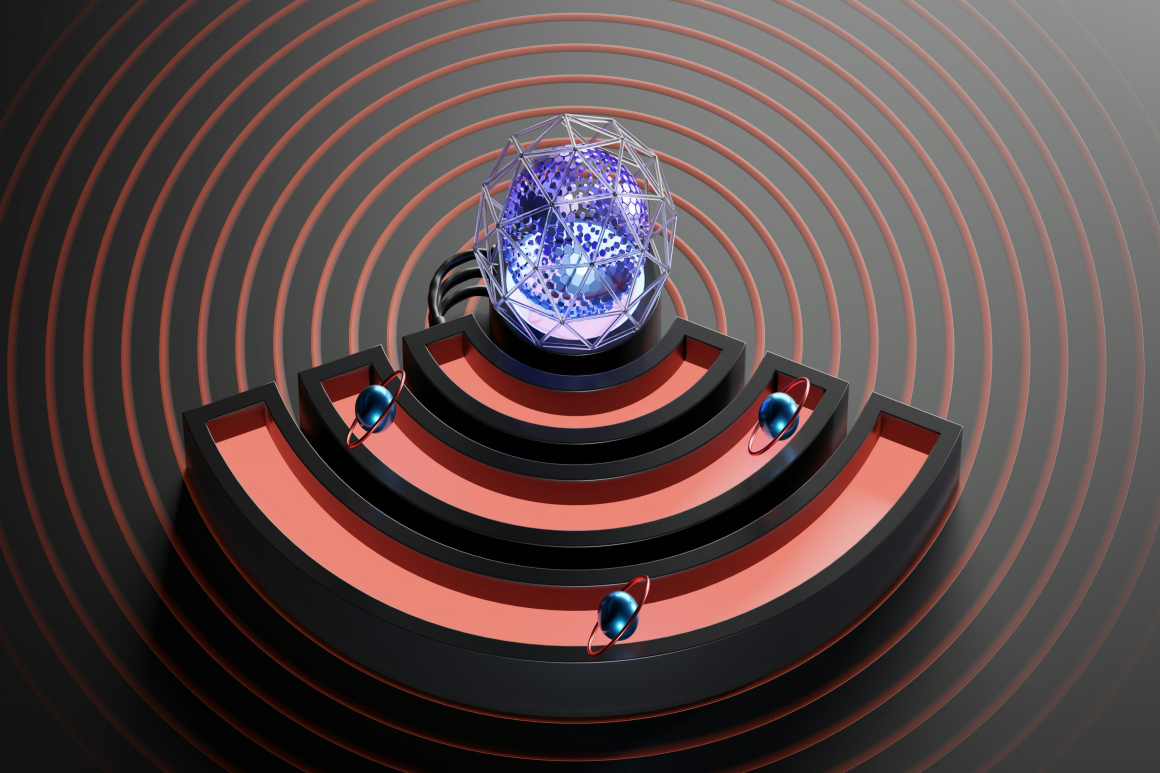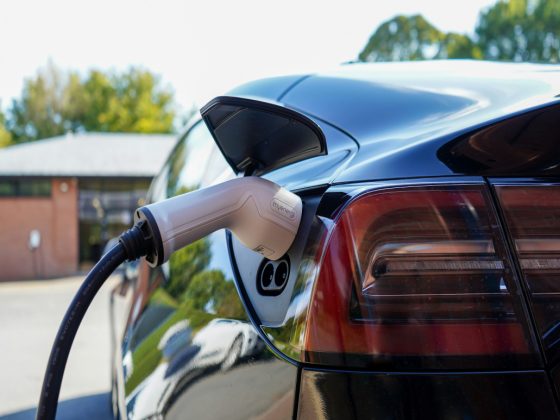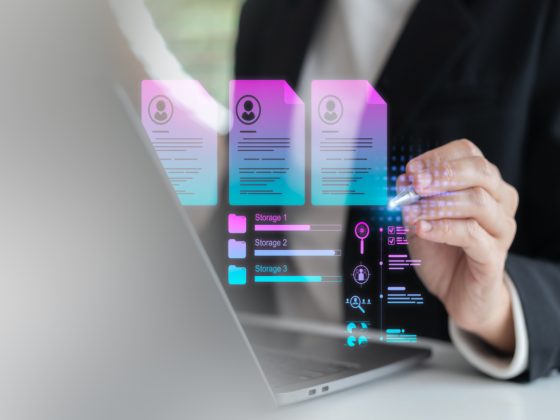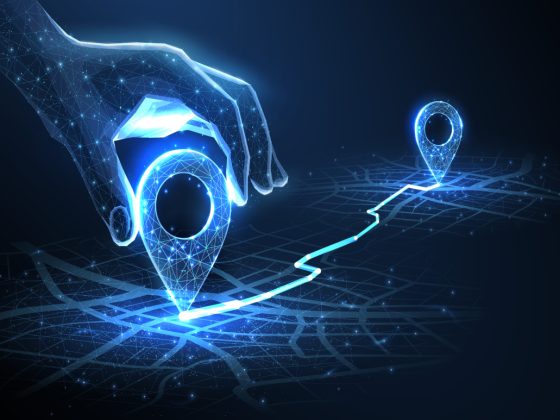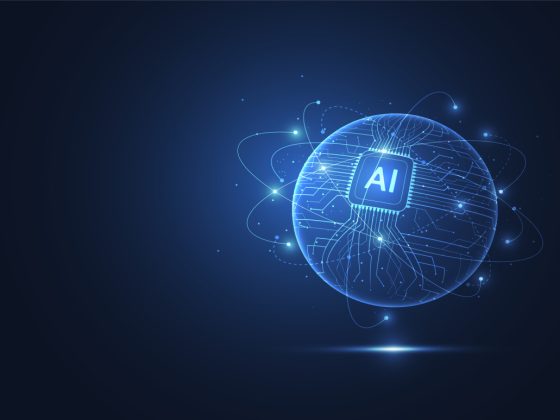IoT: Connecting Homes, Cars, and Cities
The Internet of Things (IoT) has become a defining feature of our modern world. It’s transforming the way we interact with everything from household appliances to entire city infrastructures. As IoT continues to evolve, its integration into homes, cars, and cities is shaping a more connected, efficient, and smarter environment. In this article, we will explore how IoT is revolutionizing these three crucial areas and the benefits and challenges that come with this technological shift.
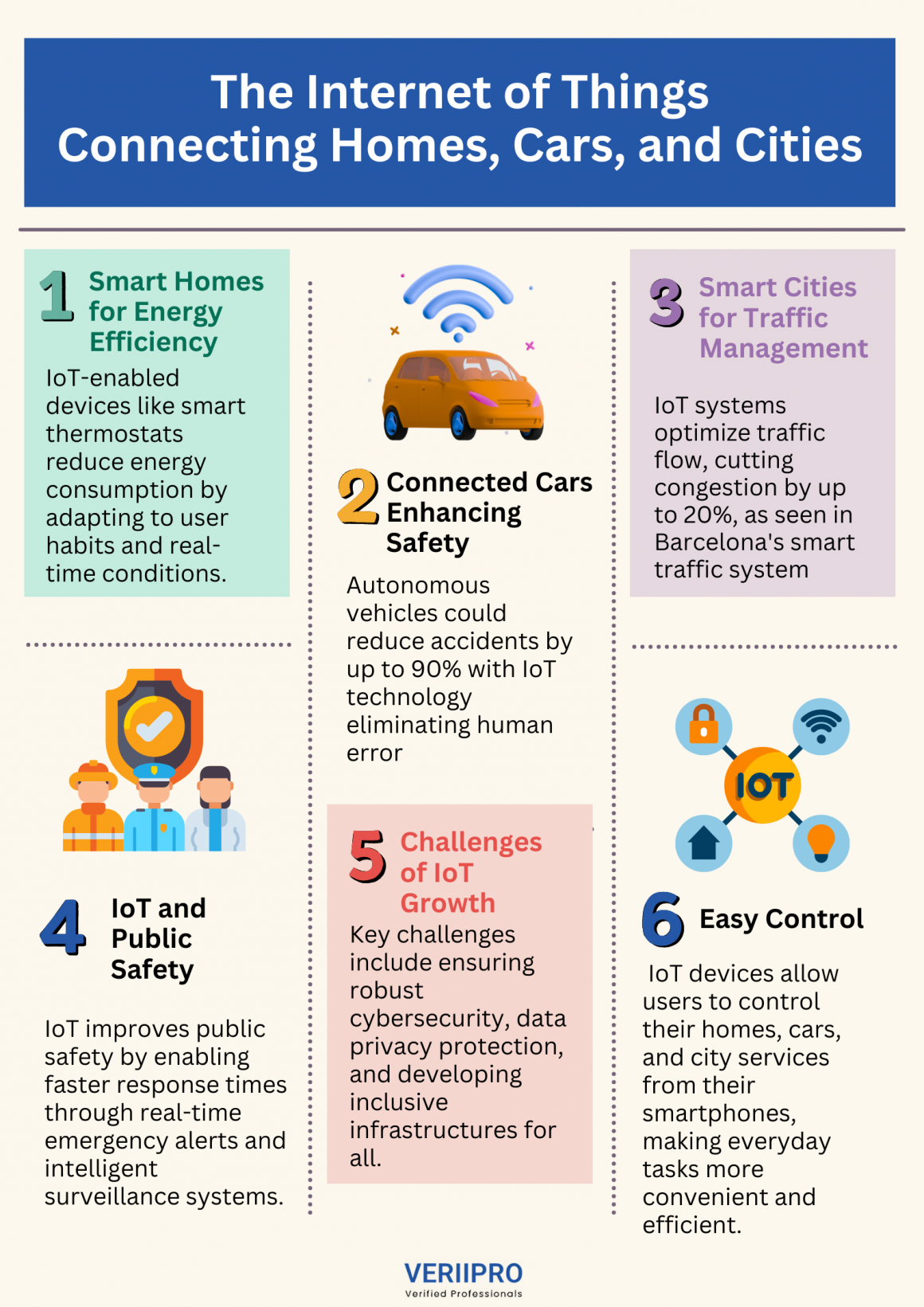
Smart Homes: The Rise of Intelligent Living
IoT technology is transforming homes into smart ecosystems where devices communicate seamlessly. From smart thermostats that automatically adjust temperature to voice-controlled assistants that manage daily tasks, IoT enhances convenience and energy efficiency. According to a report by Statista, over 57% of U.S. households are expected to adopt smart home technology by 2025.【source: Statista】
Key Benefits of Smart Homes:
- Energy Efficiency: Devices like smart thermostats and lighting systems can reduce energy consumption by adjusting to real-time conditions and user habits.
- Enhanced Security: Smart locks, surveillance systems, and doorbell cameras allow homeowners to monitor their property remotely, providing peace of mind even when away from home. 【source: Security.org】
- Convenience and Automation: With the integration of IoT, homes can automate routine tasks like scheduling lights, managing appliances, and controlling entertainment systems through mobile devices.
However, these innovations come with challenges, especially around privacy and data security. As more devices become interconnected, the risk of data breaches increases, raising concerns about safeguarding personal information.
Connected Cars: The Future of Mobility
The automotive industry is experiencing a significant shift due to IoT. Connected cars are no longer just a futuristic concept; they’re rapidly becoming a reality. From autonomous vehicles to in-car infotainment systems, IoT is revolutionizing the driving experience.
Autonomous Vehicles and Safety: IoT is the backbone of autonomous vehicles, enabling them to communicate with traffic signals, pedestrians, and other vehicles. A study by McKinsey & Company estimates that autonomous vehicles could reduce accidents by up to 90%, removing human error from the equation. Additionally, predictive maintenance technologies can notify drivers of potential issues, reducing breakdowns and improving road safety.
Infotainment and Connectivity: Connected cars also offer enhanced entertainment and convenience through IoT. Drivers and passengers can access real-time traffic updates, stream music, or even use voice assistants for navigation and communication. Moreover, IoT integration allows cars to become extensions of the smart home ecosystem, enabling users to control home devices from the car.【source: IBM】
While these advancements promise improved safety and convenience, they also raise concerns about cybersecurity. As IoT adoption in vehicles increases, so does the potential for hacking and data theft.【source: TechCrunch】 Automakers and tech companies must work together to develop robust security protocols to address these vulnerabilities.
Smart Cities: Creating Sustainable Urban Environments
Cities worldwide are adopting IoT technology to improve infrastructure, public services, and overall quality of life. The concept of smart cities involves integrating IoT into traffic management, waste collection, energy distribution, and public safety.
Traffic Management and Public Transport: One of the most significant benefits of IoT in smart cities is efficient traffic management. Sensors embedded in roads and traffic lights can monitor vehicle flow, adjust signals in real-time, and provide data for city planners to improve traffic conditions. For instance, Barcelona has implemented a smart traffic management system that has reduced congestion and cut down on travel time by 20%.
Energy Efficiency and Waste Management: IoT helps cities monitor and optimize energy consumption. Smart grids can adjust energy distribution based on demand, while smart meters enable consumers to track their energy use and reduce costs. IoT also facilitates more efficient waste collection by monitoring the fill levels of bins and scheduling pickups only when necessary, reducing operational costs. 【source: World Economic Forum】
Public Safety and Emergency Response: IoT enhances public safety through intelligent surveillance systems and sensors that can detect and respond to emergencies, such as fires or floods, faster than ever before. These systems can send real-time alerts to emergency services, improving response times and potentially saving lives.
Challenges and the Path Forward
While IoT offers numerous benefits across homes, cars, and cities, there are several challenges to overcome. Data privacy, cybersecurity risks, and the need for robust infrastructure are critical concerns. As more devices become interconnected, the need for secure communication networks and reliable data management grows. Additionally, ensuring that IoT systems are inclusive and accessible to all citizens, regardless of socioeconomic status, is crucial for creating equitable smart environments.
Despite these challenges, the future of IoT looks promising. Continued advancements in artificial intelligence (AI), machine learning (ML), and 5G technology will further enhance IoT capabilities, enabling faster data processing and more efficient operations across various sectors.
Looking for opportunities in the IoT and smart technology field? VeriiPro is here to help!
